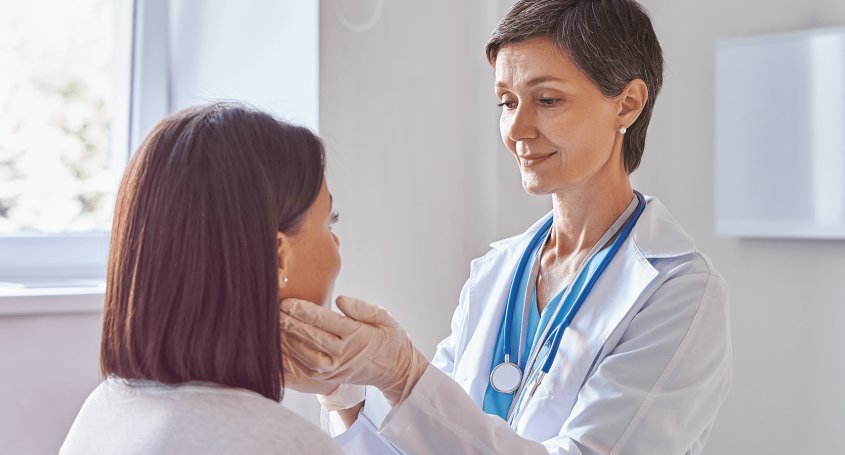The thyroid gland produces the hormone thyroxine. It is a hormone that plays an important role in the maturation of the egg during the menstrual cycle. Recent studies have also suggested that normal levels of thyroid hormones are essential for good embryo development and subsequent implantation.
Thyroid: most common disorders
There are two major diagnoses depending on whether thyroid hormones are low (hypothyroidism) or high (hyperthyroidism). In the first case, TSH (thyroid stimulating hormone) levels will be high, while in the second case they will be very low.
Hyperthyroidism
Most hypothyroidism is autoimmune in cause, although high levels of anti-thyroid antibody can also occur with normal TSH levels, called subclinical hypothyroidism. Clinical hypothyroidism has been associated with ovulation problems through an increase in prolactin, as well as poorer results of assisted reproduction techniques. While subclinical hypothyroidism does not appear to affect pregnancy rates, it may represent a higher risk of miscarriage once pregnancy is achieved.
Therefore, once a thyroid hormone deficiency has been established, the addition of levothyroxine is recommended to normalise the situation. This treatment would also be useful in cases where TSH is above 2.5 IU/ml even when thyroxine levels are normal, as ovarian stimulation treatments can reduce thyroid hormone levels, turning subclinical hypothyroidism into clinical hypothyroidism. Some have suggested that patients undergoing stimulation treatment should increase their thyroxine doses by 30%, and that if this is done before the patient becomes pregnant, it is much easier to control levels during pregnancy.
Hyperthyroidism can also cause fertility problems by altering ovulation. However, their importance in fertility treatments is minor as these patients usually complete the necessary treatments to solve the problem before starting any assisted reproduction treatment.
In general, TSH (thyroid stimulating hormone) and anti-thyroid antibodies should be tested in all infertile patients, but especially in those with endometriosis, ovulation problems or repeated miscarriages, as the incidence of these problems is higher in these populations.
If high TSH values are demonstrated, especially if they are higher than 4.5 IU/ml, they should be supplemented with levothyroxine until the TSH is below 2.5 IU/ml. If values are high, the necessary treatments (antithyroid or surgery) should be applied before starting any treatment. If TSH values are normal but high antithyroid antibody values are detected, it is advisable to repeat measurements after ovarian stimulation, adding levothyroxine if subclinical hypothyroidism has become clinical.














